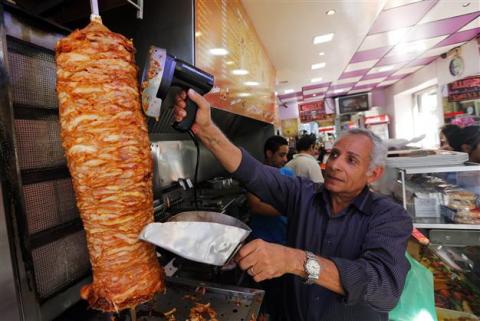In France, kebabs get wrapped up in identity politics

In a country whose national identity is so closely connected to its cuisine, France's hard right has seized on a growing appetite for kebabs as proof of cultural "Islamization".
Four kebab houses opened last month in Blois, bringing the total to over a dozen in the pretty Loire valley town where tourists come to see the castle. The far-right National Front party railed: "The historical center of Blois, the jewel of French history, is turning into an Oriental city".
The implicit message is clear: the now ubiquitous kebab, popular with the young and cash-strapped, is a sign that Middle Eastern culture has taken root in France, where not everyone is happy about the presence of 5 million Muslims.
"The kebab is a bit of a reflection of all the problems with immigration and integration in France," says Thibaut Le Pellec, founder of KebabFrites.com, a website that ranks kebab houses across the country and seeks to raise the reputation of the "kebabistes" who make and sell the food.
Damien Schmitz, who runs a kebab shop in Paris, puts it more bluntly: by criticizing the kebab, he says, "you can speak ill of Muslims without speaking ill of Muslims."
Introduced by Turkish immigrants to Paris in the 1990s, the doner kebab -- where meat is carved off an upright rotating spit and served in a flatbread with salad and spicy sauce -- quickly found favor with France's North African population raised on spiced halal meat in tagines and stews.
The dish adapted to the French palate, served in crusty bread, with the addition of a creamy white sauce and side of fries.
Now, some 300 million kebabs at about 6 euros each are eaten in 10,200 outlets in France each year, putting the 1.5 billion euro ($1.9 billion) industry just...
- Log in to post comments










